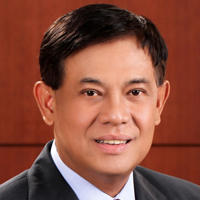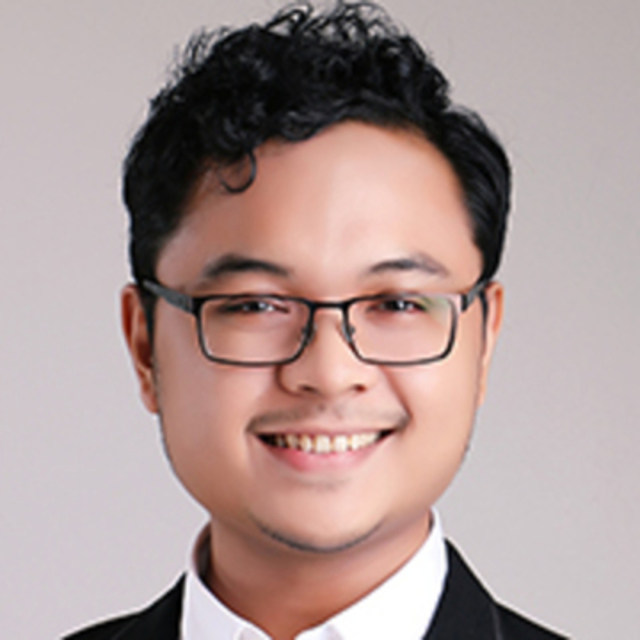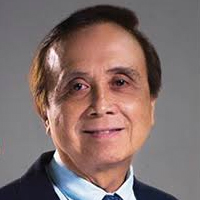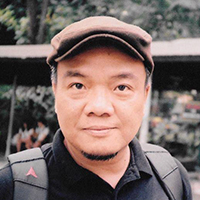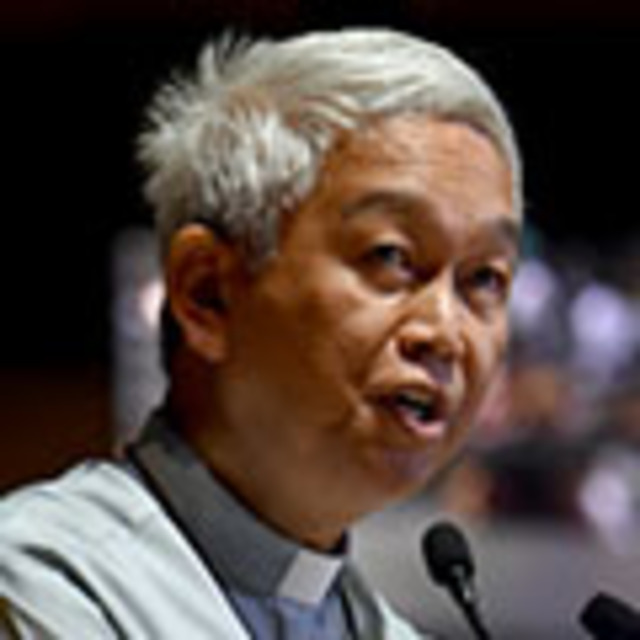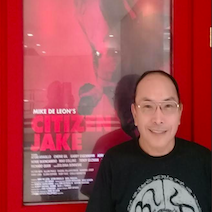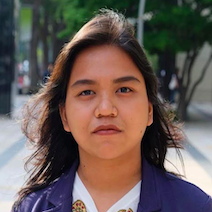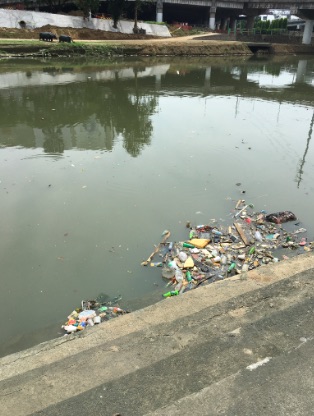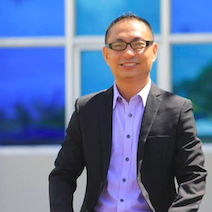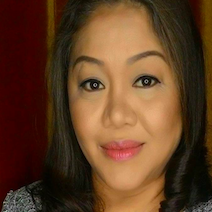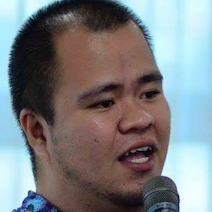![]()
Many times, when President Rodrigo Duterte answers questions from the media or declares a new policy on controversies that have cooked up a storm, he does so without any background or consultation about the issues at hand.
Many times, he doesn't know what he's talking about.
But because he is the Chief Executive, most of us, including the media, take his word for it and report what he says. Rarely is there any acknowledgment that Duterte missed an analytical step, made a dangerous assumption, or was simply ignorant about the subject matter.
Duterte's mistakes can be harmless – publicly castigating actor Gabby Concepcion when he meant ABS-CBN chairman emeritus Gabby Lopez, or calling JV Ejercito "Jinggoy," the name of his estranged brother.
There are the bothersome misconceptions bordering on historical distortion, like when he keeps insisting Lapulapu was a Muslim, specifically a Tausug, based on the headgear in painted depictions of the hero, even when historians say there are no documents to support such a claim.
Then there are the mistakes that send ripples through society and change public policy.
The most recent example was his faux pas with the SOGIE (sexual orientation and gender identity and expression) equality bill. When GMA reporter Joseph Morong asked him categorically if he would certify the SOGIE bill as urgent, Duterte said, "Yes, whatever would make the mechanisms of – what would make them happy."
Turns out, Duterte wasn't referring to the SOGIE bill. It was a more general "anti-discrimination bill" he had in mind, according to Presidential Spokesperson Salvador Panelo.
Which begs the question, did Duterte even know about the SOGIE bill? Did he even read versions of it? Because how could he have mistaken it for another bill?
![TAKING QUESTIONS. President Rodrigo Duterte responds to questions from reporters. Malacañang photo]()
Maybe it would have been wiser to ask Duterte first if he knew about the SOGIE bill rather than go straight to asking if he would certify it as urgent.
Security and mixing it up
We can perhaps forgive a septuagenarian given to sexist slurs to be unaware of what the SOGIE bill is all about. But what to make of a Commander-in-Chief who once got the West Philippine Sea mixed up with the Philippine (Benham) Rise?
In a late-night press conference in March 2017, Duterte was asked to comment on China's statement that the Philippines cannot claim Philippine Rise as its territory. He responded by spooling out his usual monologue about the futility of asserting the Hague ruling. But the ruling covers the West Philippine Sea, and not the Philippine Rise, which lies on the other side of the Philippine landmass.
Duterte had to be briefed days later by National Security Adviser Hermogenes Esperon Jr about the difference between the two seas. Defense Secretary Delfin Lorenzana admitted with a chuckle, "Na-mix up niya (He got it mixed up)."
And what of the earlier debacle, when Duterte, in China no less, announced his military and economic "separation" from the United States? The President, no doubt, knew of the Philippines' defense alliance with the Western power, but he did not appreciate the impact that the word "separation" and the act of announcing from Beijing would have on diplomatic ties, security, and the economy.
His economic managers, Finance Secretary Carlos Dominguez III and Socioeconomic Planning Secretary Ernesto Pernia, had to quickly piece together a joint statement clarifying that Duterte's "separation" was really just a "pivot" to neighboring countries, not an abandonment of ties to the West.
Misguided orders
Duterte's confusion stretches to issuing orders.
Confronted by a rice shortage in 2018, he announced he was going to "abolish" the National Food Authority Council, the country's decision-making body on food security. Executive Secretary Salvador Medialdea and then-agriculture chief Emmanuel Piñol had to explain that this could not be done without Congress approval. Duterte recalibrated.
Duterte is fond of "abolish" threats. In his 2019 State of the Nation Address, that's what he warned Landbank he would do, because he didn't like how they were acting "like a commercial bank," supposedly instead of providing financial assistance to farmers.
But it was an ill-informed accusation.
While Landbank was created to finance the government's acquisition to buy agricultural lands for resale to small landholders, it was granted universal banking powers in 1973, thus allowing it to function as a commercial bank as well. Today, Landbank is among the biggest universal or commercial banks in the country. As for Duterte's claim that it has not given loans to farmers? Landbank is actually their biggest lender, among commercial banks. (READ: FAST FACTS: What you should know about Landbank)
While the Agri-Agra Reform Credit act requires banks to allot 25% of the loan portfolios for agriculture and fisheries, the loans extended to agrarian reform beneficiaries and farmers reached 27.45% of the bank's total loan portfolio (P799.64 billion as of June 30, 2019).
Economist Cielito Habito had said Duterte's accusations were "misplaced."
With the public seething over a water crisis in Metro Manila and Rizal in early 2019, Duterte ordered the Metropolitan Waterworks and Sewerage System (MWSS) to release 150 days' worth of water supply from Angat Dam.
A nonplussed MWSS Administrator Reynaldo Velasco said letting out this much water, equivalent to 600,000 million liters per day (MLD), is impossible since infrastructure allows the release of only 4,000 MLD from the Angat Dam. Also, there was a water crisis precisely because water from the Angat Dam could not reach the aqueduct gates.
The President was given the "wrong advice," said Velasco.
Was it wrong advice too that led Duterte to order a blanket suspension of all Philippine Charity Sweepstakes Office (PCSO)-accredited gaming operations only to walk back on the order days later? Duterte eventually decided to lift the suspension for lotto operations because he was told, again by Medialdea, that no anomalies were spotted in such operations.
But the 4-day closure of lotto operations cost the government P250 million in revenues. Would it not have been wiser to spare lotto games from the start?
It's not as if Duterte had no way of knowing corruption is less likely in lotto games because of its automated systems. In fact, he had met with PCSO officials the night before issuing his blanket order. He could have consulted them, inquired about the extent of corruption in each of the gaming formats, and asked about the impact on livelihood and government revenue.
Maybe he did do these things, but the order he issued lacked any nuance to show he did.
Duterte speaks before fully understanding issues. He barks orders before analyzing the situation and considering all angles.
PR solutions vs real solutions
Covering him since the start of his presidency, I've come to believe this is because he views public statements and declarations as public relations moves more than policy solutions.
Is it any wonder then that his most shocking policy pronouncements always stop at being verbal orders, instead of getting fleshed out eventually in executive orders or memoranda? Is it not concerning that his verbal orders may lack the legal basis necessary to turn them into formal document-based issuances?
Instead of losing sleep over this, government officials just say Duterte's word is law and that media reports about his speeches are enough documentation.
Duterte, above all else, is a PR stuntman. He feels the pulse of ordinary Filipinos and is good at reacting to whatever angers, saddens, disappoints them – through shocking public statements, threats, or touching visits to victims of tragedies.
This is why he performs well in popularity surveys. But no survey quite captures how effective or ineffective a leader is at systematically fixing problems and finding long-term solutions. Duterte can fix PR debacles, but how good is he at addressing the actual problems underlying those debacles?
Image preservation is different from running a government.
It's worrisome when someone running the government speaks before thinking. Presidential statements are taken as government policy. One mistake reverberates down the line, impacting everything from national security (like in the Philippine Rise debacle) to funding for government charity programs (PCSO games shutdown).
For this reason, presidents are assumed to receive briefings from concerned government agencies, to be appraised on issues media will likely ask about in press conferences, and, at the most basic level, to exercise judgment on when to speak and not to speak on complex and sensitive topics.
Duterte's advisers
Who advises Duterte on what he says?
Medialdea, a lawyer, certainly has his ear, but it seems his advice is sought only after the President makes public declarations. (READ: Evolution of the Duterte Cabinet)
Bong Go, though now in the Senate, still regularly speaks with Duterte and continues to have a say on who the Chief Executive appoints and where he goes.
![DUTERTE'S EAR. Executive Secretary Salvador Medialdea (left) has convinced President Rodrigo Duterte to change his orders after he announced them. Malacañang photo]()
Panelo, who is also chief presidential legal counsel, sends the Office of the President his advice on legal matters, such as on the Good Conduct Time Allowance law, but he does not make any inputs on Duterte’s messaging.
He often says the President does not need to confer with anyone on decisions because he is the Chief Executive. Or else he praises Duterte for his off-the-cuff, instinctual speaking style.
The most Panelo does is ask Duterte how he, as his spokesman, should respond to reporters' questions, or else "clarify" that the President's latest outrageous remark was just a "joke" or a Bisaya-Filipino translation gone wrong.
Communications officials like Martin Andanar help in crafting speeches; so does Palace Undersecretary Melchor Quitain. They try hard to make these prepared remarks reflect Duterte's priorities and sentiments.
But when Duterte departs from the teleprompter or typed-up page in front of him, he is truly on his own, the captain of his own ship. No one can control what he says. And this is where he is free to be himself, to spread his wings and fly while his advisers anxiously wait on the sidelines.
"You can't control my mouth. It's a gift from God," Duterte often declares.
But should Duterte really be allowed to speak as he does? Is it responsible for government officials to assume Duterte knows of what he speaks and be content with making adjustments later on if he turns out to be wrong?
Duterte and his advisers have to work harder at studying problems, listening to experts, seeking different opinions and concerns, to arrive at better solutions – not just stop-gap, crowd-pleasing, yet often misguided announcements.
More crucially, his advisers have to accept that Duterte, like all presidents, like all humans, can make mistakes, and it is their job to prevent such mistakes. One way to do that is to fix the messaging.
When Duterte decides to go on-air to make an announcement on a new policy, can his advisers first recommend caution and a thorough analysis of the policy and how it should be explained to the public?
Reporters have to be aware of Duterte's shortcomings and tendency to speak before understanding headline-grabbing controversies. There are topics Duterte would likely be well-versed in, like his campaign against illegal drugs or the communist insurgency. But when it comes to liberal policies on gender equality, technology, or the economy, Duterte may need help from reporters to understand questions they are asking.
When there is even a sliver of doubt about Duterte's answers, media should ask follow-up questions and constantly seek clarification. Perhaps news organizations should also refrain from writing reports based on Duterte's vague but alarming or important-sounding one-liners.
When faced with the stickiest of criticism, Malacañang will pull out Duterte's popularity ratings as a one-size-fits-all response. But these numbers should not fool people into thinking popularity always translates to good, effective leadership.
Duterte speaks very well. He's right, his mouth is God's gift to him.
But being president is more than looking and sounding good. It's having the patience to understand problems, the rigor to find the best solution, and the humility to listen to other people.– Rappler.com
Pia Ranada covers the Office of the President for Rappler.
![]()


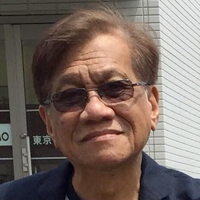 After over two and a half years
After over two and a half years 




